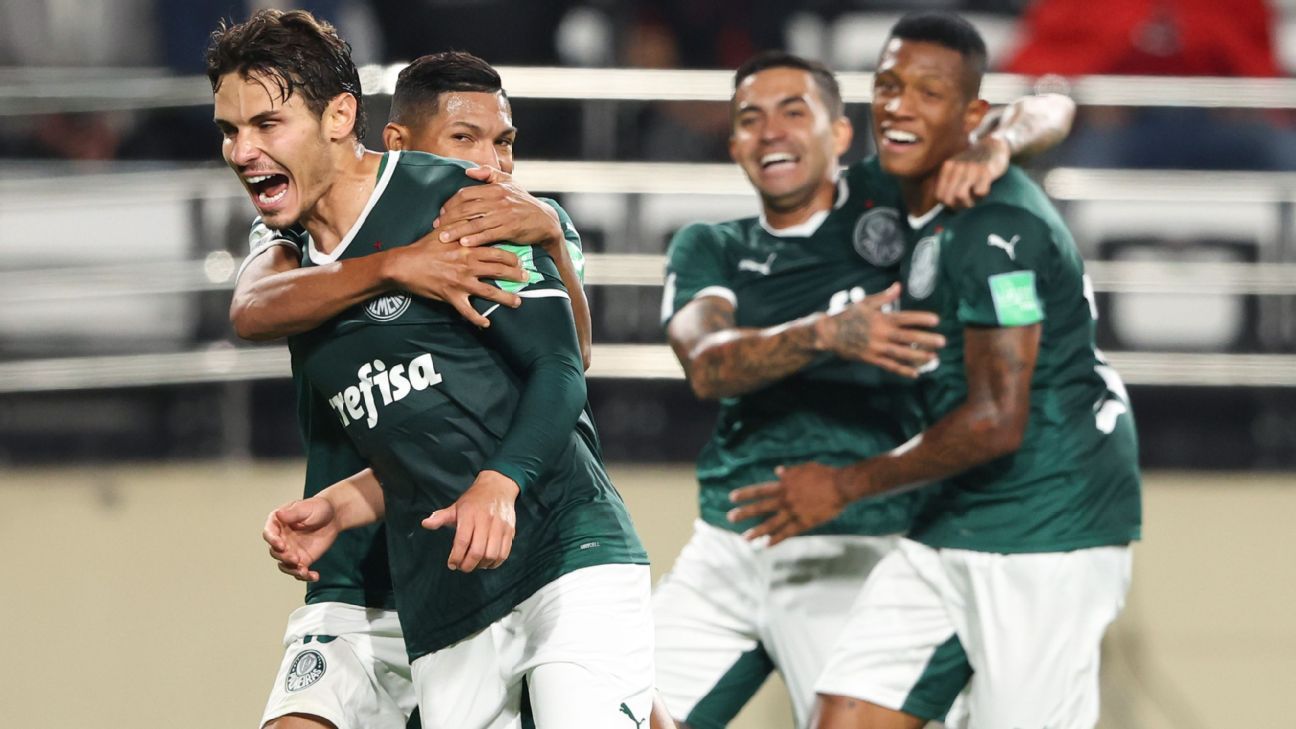Products You May Like
There are 12 former champions in the field of South America’s Copa Libertadores, which kicks off on Tuesday. Not all of them, however, have realistic hopes of winning this time. The Uruguayan pair, Penarol and Nacional, were very strong in the early years but have not lifted the trophy since the late 1980s. More than 30 years have passed since Colo Colo of Chile won the competition for the only time. And Olimpia of Paraguay’s last title came 20 years ago. All of which leaves Brazil and Argentina.
Since the Libertadores moved to its current format in 2017, played across the year rather than squeezed into the first six months, the domination of the big two has been all but complete. From the other eight countries, only one other club — Barcelona of Ecuador — has reached the semifinals. And since the controversial River Plate vs. Boca Juniors final in 2018, Brazil has taken control, with three consecutive wins, the last two in all-Brazilian finals.
Last time round Palmeiras retained their title beating Flamengo in the final, with domestic double winners Atletico Mineiro bowing out unbeaten in the semis. These are Brazil’s current big three and the most logical place to look for this year’s favourites.
– Vickery: Can River or Boca break Brazil’s Libertadores dominance?
– Don’t have ESPN? Get instant access
Palmeiras, still under Portuguese coach Abel Ferreira, look especially strong. Flamengo have a new Portuguese coach, former international midfielder Paulo Sousa, who may well already be wondering if he has made a mistake walking out on the Poland national team to take charge of the Rio giants. He has not got off to a good start. His three centre-back system, so far, is looking like an inflexible imposition. But Flamengo’s group does not come across as especially taxing, which should buy Sousa some much needed time.
Atletico Mineiro also have a foreign coach, Argentina’s Antonio Mohamed. He has been less doctrinaire than Sousa, adapting his system to the players rather than vice versa. But his team have been drawn in one of the tougher groups, with spice added by two local derbies against America Mineiro, playing their first Libertadores campaign and keen to pour water into the champagne of their glamorous city rivals.
Of the other Brazilian teams, much will expected of Corinthians, whose experienced squad might be better suited to a cup competition than the long haul of the Brazilian league. And this throws up an early clash in a key battle of this year’s competition — Brazil versus Argentina. In a replay of the 2012 final, Corinthians’ lone Libertadores triumph, they are in the same group as Boca Juniors.
Estudiantes‘ pragmatic side might be difficult opponents. But there seems little doubt that the main Argentine challenge should come from River Plate and Boca Juniors. The Buenos Aires rivals have contrasting styles. Under the reign — nearly eight years and running — of Marcelo Gallardo, River are expansive and easy on the eye. Gallardo has already taken the club to two Libertadores triumphs, but in the last three years he has found it successively harder to take on the Brazilians. This year the club have invested heavily to provide him with a more competitive side, and it will be fascinating to see whether his side will be able to defend against the best of the Brazilians. Debutants Fortaleza will pose a test in the group phase — but the stiffer challenges will surely come in the second half of the year.
Boca, meanwhile, are likely to put their faith in a model of play based on tight defence and counter-attacks. It might possibly prove more effective against the Brazilians, and the two group games against Corinthians will throw up some early evidence.
Elsewhere, there is always interest in the Ecuadorian clubs. Little Independiente del Valle have raised the bar significantly with the excellence of their youth work, and in recent times they have seen that they can compete for titles as well as fulfilling the main objective of producing and selling players. In 2019 they won the Copa Sudamericana, the continent’s Europa League equivalent, and they are now domestic champions for the first time. Their style might be too expansive for the Libertadores — they were taken apart by Palmeiras last year — but they are always worth watching.
If Ecuador has been punching above its weight, then much the same applies to Paraguay, whose teams can make up for in resilience what they lack in outstanding talent. The two traditional Asuncion rivals, Cerro Porteno and Olimpia, have been drawn in the same group, and a big attraction of Tuesday’s first night is the latest version of Paraguay’s big derby.
If Ecuador and Paraguay have tended to do better than might have been expected, the opposite is true of Colombia. Atletico Nacional won the trophy in 2016, the last year before the change of format. Since then, only one Colombian side has managed to progress beyond the group phase — a highly disappointing performance from the country with the biggest population in the continent outside Brazil.
This year has not started well. Both Millonarios and Atletico Nacional fell in the qualifying rounds. And this opening week will be a test of the strength of the Colombian challenge. On Tuesday Deportivo Cali are at home to Boca Juniors, while 24 hours later Tolima play host to Atletico Mineiro. The Colombians, then, are straight into the action against some of the tournament favourites. But they have home advantage. Can they make it count? Or will 2022 be another year when Brazil and Argentina dominate South America’s Champions League?
